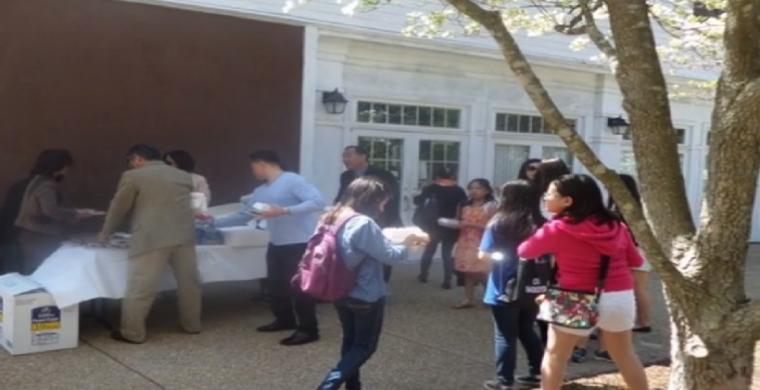Seeking Cash, Virginia Episcopalians Make Way for Evangelical Tenants
By Jeff Walton
http://juicyecumenism.com/
July 17, 2014
Like the 1968 film “The Odd Couple,” a group of liberal Episcopalians, recently divorced from Anglican former parishioners, is looking to share space with some Korean Southern Baptists.
Currently this Episcopal congregation, a small remnant of a once robust congregation that joined the Anglican Church in North America and lost its building to the Episcopal Diocese of Virginia, is subsidized by the Diocese to the tune of over $6,000 per church attender.
This past autumn I blogged about how two church properties formerly the home of Anglican churches and awarded to the Diocese of Virginia in court rulings were now, somewhat ironically, being rented or sold to evangelical congregations. The rebuilding of continuing Episcopal congregations is slow work, in some cases requiring substantial financial support from the diocese in order to maintain and operate facilities. The Diocese is once again leasing space to an evangelical group, this time at Epiphany Episcopal Church in Herndon.
In an announcement to church members this past Sunday, Epiphany Episcopal Church made public that an agreement has been reached with New Hope Washington Central Baptist Korean Congregation, which will move into the property off of Fairfax County Parkway in late July.
“God has called Epiphany to build, grow and serve. Part of building, growing and serving, is financial self- sustainability,” wrote Priest-in-Charge Hillary West in an e-mail to the Episcopal congregation. “Over the next two and one half years, the Diocese intends to incrementally decrease its financial commitment with the belief that Epiphany will become financially sustainable through increased pledge commitments and sharing our space with a major tenant.”
More than any other continuing Episcopal congregation in the diocesan “dayspring” program, Epiphany relies disproportionately upon diocesan financial support. A 2013 stewardship report from the congregation revealed that the diocese shouldered $325,640 out of a total budget of $560,640 that year. The congregation lists an average Sunday attendance of less than 50 persons, in contrast to an attendance of 380 prior to the 2007 split.
The small remnant Epiphany Episcopal congregation has seen a revolving door of a half-dozen clergy since 2007, when the majority of congregants voted to depart the diocese. Upon assuming control of the property two years ago, a new vicar was installed with fanfare and optimism. That vicar, the Rev. Jennifer McKenzie, served just over a year and then vanished in late summer 2013 with no announcement. Archived newsletters listing autumn events to be hosted by McKenzie indicate a sudden and unplanned departure. After a brief stint with an interim clergywoman, the congregation brought in the current priest-in-charge.
According to West, New Hope began with about 70 persons and has quickly grown to about 150. While “New Hope is not the major tenant still being sought,” in West’s words, leasing to the Korean congregation is “a good, healthy step forward.”
“They love Epiphany and have a long, very favorable history with the Episcopal Church,” wrote West, who did not note that the congregation is affiliated with the conservative Southern Baptist Convention. “New Hope will not simply be a tenant of Epiphany. We’re looking forward to the opportunity to share in ministry together and learn from one another.”
Here’s hoping that New Hope not only thrives, but blesses Epiphany Episcopal through their Gospel witness.
END














